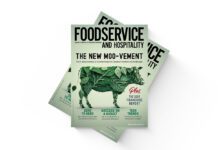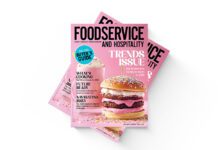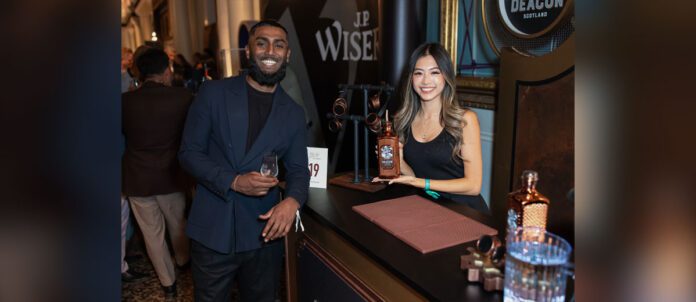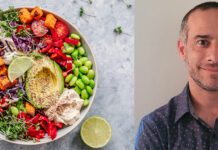By Zachary Shaul
Feaster Events, a B.C.-based events company, centres around food-and-beverage promotion, beer and wine tastings and premium entertainment for its attendees. Whether it’s sampling a summery rosé wine paired with electronic dance music and charcuterie boards at Rosé Disco, or tasting premium whiskies accompanied by live music at Whisky Global, Feaster puts on a wide variety of events.
Co-founded by Adam Bloch and Dax Droski in 2016, their mission was to elevate the typical trade-show experience, which usually focuses mainly on brands showcasing their products to potential buyers. Feaster turns a trade show into a memorable event experience that gives brands the opportunity to showcase their products while attendees learn about those products in a unique and exciting way.
“We try to straddle the line between offering incredible entertainment value but also offer an opportunity for brands to showcase their products. For example, at a beer festival, people come to the festival to drink beer and have a great time outside, but instead of drinking full pints of beer, they’re drinking 20 little beers, which is more enjoyable. At the same time, they’re learning about beer, and the breweries get an opportunity to meet new customers to really showcase why their beer is different,” says Bloch.
“It’s not just a trade show. It’s not just about trying the product, it’s about creating a whole theme around the product,” adds Droski.
Feaster started off hosting events in Vancouver and across B.C. but since the company’s growth, they’ve been hosting some of its most popular events such as the Rosé Disco and Whisky Global in other Canadian cities, such as Toronto. With the variety of events hosted each year, the demographics and target market are unique to the event itself which makes for a truly personalized experience.
“[We target] younger demographics with disposable income. We’re not going after 20 to 22-year-olds because it’s not a party to get drunk at. It’s aimed more at people with curated palettes, [who are curious] about the flavour and intricacies of the product versus just drinking it,” says Bloch. “Rosé wine tends to be [consumed by more] females, so we’re going after that 27 to 45-year-old female. But the demographic at Whisky Global starts around 35. It’s very different at each event.”
“We’ve also made note of consumption trends, such as younger demographics consuming less alcohol. In response to that, we try to layer in other experiences within the event to make it more attractive for people to come out,” adds Droski. “One of our other events, Punch Bowl, was a cocktail festival for five years, but last year we switched it to a cocktail and taco festival to drive ticket sales and give consumers an opportunity to try something new.”
Like many businesses, Feaster suffered losses during the COVID-19 pandemic and adapted to the changing environment of large-scale events. Fortunately, the company was able to evolve and grow into a stronger, well-rounded business.
“We’re no different than any other group that went through this and it was challenging for everyone. I talked with a lot of other event producers that own these kinds of events. How is it going to change? Adam and I talked about it at the beginning, and we had no interest in virtual events as that was the trend during the pandemic,” says Droski. “We both did our own projects while still meeting weekly with Feaster to figure out what we were going to do. Lots of groups were exiting these types of festivals and events due to the pandemic. Eventually, we got approached to acquire some event groups. One of them was Harvest Haus, the largest Oktoberfest celebration in Vancouver and now it has had its most successful year yet with almost 7,000 people attending last year. Now we’re taking it to Calgary this October with plans to expand it in other markets in Canada.”
Feaster has had an upward recovery with more people returning to these types of large-scale events. Regarding future trends in this industry, the company seeks to continue incorporating more experiences into each event given that attendees are consuming less alcohol overall, as well as live music. Looking ahead, Feaster plans to expand into more provinces, as well as the U.S. eventually.
“Food is a big part of our festivals now, especially since people are consuming less alcohol. In terms of live music, we’re not trying to compete with Live Nation or someone like that on that scale but providing an amazing element of entertainment that you won’t typically get at these types of food-and-beverage events,” says Droski. “It’s time to expand in other provinces, which we’re doing with Whisky Global. There are six events hosted in Vancouver, Toronto, Calgary and we’re going to Edmonton and Montreal this year. You’re also going to see Rosé Disco and Harvest Haus also appear in other markets. We’re also looking to expand to the U.S. as we’ve had a lot of interest down there. That’s probably more of a 2026 goal, but I think we’ll be leading with our Rosé Disco and Whisky Global brand.”





















